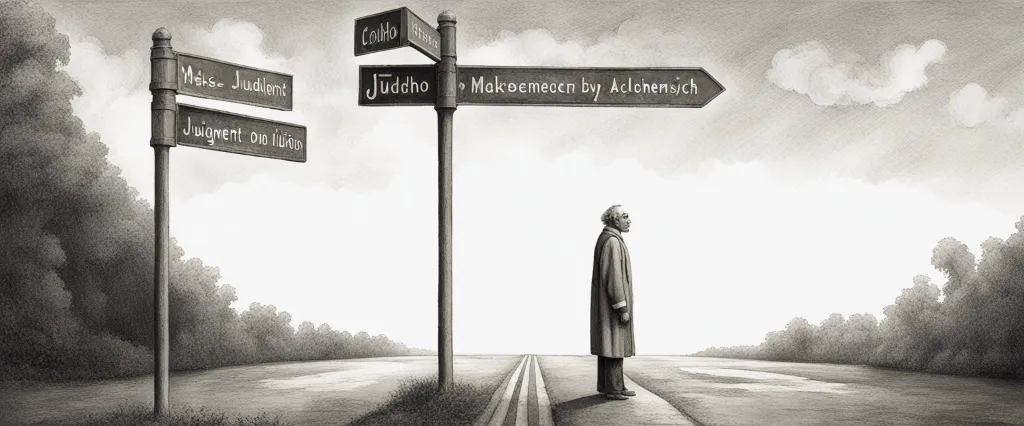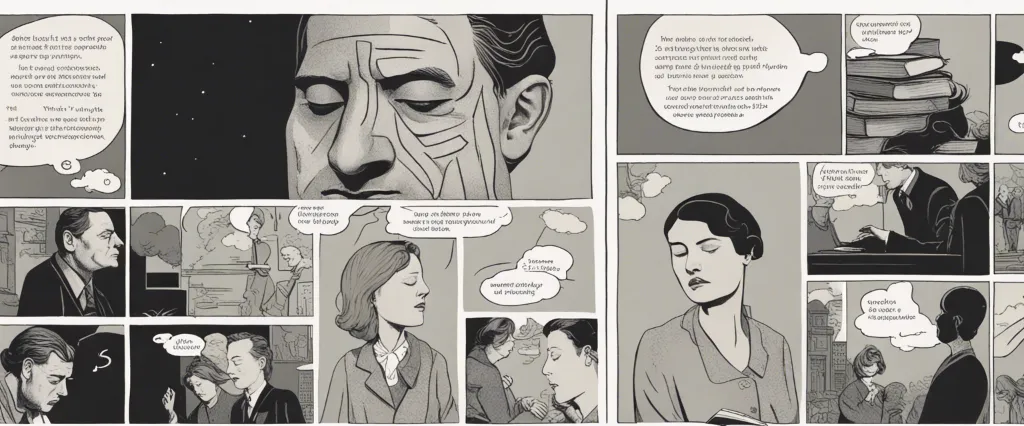
Literature has always been a gateway to explore the human condition, delving into the depths of our desires, struggles, and triumphs. Two such celebrated novels that have captivated readers with their nuanced storytelling are “Of Human Bondage” by William Somerset Maugham and “The Alchemist” by Paulo Coelho. While seemingly disparate in subject matter and style, both novels touch upon profound themes of self-discovery, personal growth, and the eternal pursuit of fulfillment. In this comparative study, we aim to analyze and contrast these works, exploring the unique perspectives they offer on the human condition and the paths we traverse in our search for meaning. Through a careful examination of their narrative structures, character development, and underlying philosophical ideas, we hope to unravel the distinct ways in which Maugham and Coelho navigate the complexity of human experiences while shedding light on their similarities and differences. Ultimately, this study aims to provide a comprehensive analysis of these two exceptional novels and contribute to a deeper understanding of the human psyche and the profound impact of literature on our lives.
Brief Summary of Two Books
Of Human Bondage by William Somerset Maugham
“Of Human Bondage” is a semi-autobiographical novel by W. Somerset Maugham, first published in 1915. The story follows the life of Philip Carey, a young man born with a deformed foot, as he navigates the challenges of his physical disability and his search for identity, purpose, and love.
Philip’s childhood is marked by neglect and the death of his parents. He is sent to live with his strict and unsympathetic uncle and aunt. As he grows up, he struggles with his physical appearance and tries to find solace and acceptance. Philip’s desire to become an artist leads him to study at a London art school. However, he soon realizes that he lacks the talent to succeed as a painter.
Abandoning his artistic dreams, Philip begins studying medicine, initially in London and later in Paris. During his time as a medical student, he experiences various relationships, but most notably falls in love with Mildred Rogers, a manipulative and heartless woman who uses him for her own benefit. Philip becomes infatuated with her, enduring her mistreatment and experiencing emotional and financial ruin as a result of his bond with her.
After a series of failures and disappointments, Philip meets a kind and caring woman named Sally. They marry and have a child together, but their relationship becomes strained when Philip falls in love with another woman. This leads him to question his choices, his happiness, and his concept of love.
Throughout the novel, Philip undergoes a journey of self-discovery, examining themes such as the complexities of human relationships, the pursuit of personal fulfillment, and the limitations imposed by societal expectations. “Of Human Bondage” explores the struggle between freedom and self-imposed bondage, ultimately illustrating that one can find liberation by accepting oneself and embracing life’s uncertainties.
The Alchemist by Paulo Coelho
The Alchemist by Paulo Coelho tells the story of a young Spanish shepherd named Santiago who dreams of finding a hidden treasure in the Egyptian pyramids. He embarks on a journey to pursue his Personal Legend, a term that Coelho uses to describe one’s true purpose or destiny in life.
Along the way, Santiago encounters various individuals who guide and teach him important life lessons. The most significant of these encounters is with an enigmatic alchemist who helps him understand the language of the universe, the concept of the Soul of the World, and how to listen to his own heart. The alchemist teaches Santiago about the importance of pursuing his dreams, even in the face of fear and uncertainty.
Throughout his journey, Santiago learns to trust the process of life, to follow his intuition, and to believe in the power of his dreams. He realizes that everything he needs is already within him, and that the universe conspires to help those who are wholeheartedly pursuing their dreams.
The Alchemist explores themes of self-discovery, personal transformation, and the importance of following one’s dreams. Coelho uses vivid storytelling and allegorical elements to convey spiritual and existential concepts. Ultimately, the book encourages readers to listen to their hearts and pursue their own Personal Legends, as they hold the key to their true fulfillment and happiness.
Comparison between Two Books

Similarities in Self Discovery
Both “Of Human Bondage” and “The Alchemist” explore the theme of self-discovery in their own unique ways. Although they belong to different genres and time periods, the central characters in both novels embark on transformative journeys that ultimately lead them to a deeper understanding of themselves and their purpose in life.
In “Of Human Bondage,” Phillip Carey, the protagonist, is born with a physical deformity that becomes a metaphor for his emotional and psychological struggles. His journey of self-discovery begins when he leaves his stifling upbringing behind and moves to Paris to pursue his passion for art. Throughout the novel, Phillip yearns for love and acceptance, which ultimately leads him to various relationships and experiences that shape his self-perception. It is through these encounters, such as his infatuation with the cold-hearted Mildred and his friendship with the compassionate Fanny Price, that Phillip learns to confront his insecurities and understand the complex nature of human relationships. Through this process, he gains a deeper understanding of himself, his desires, and the importance of self-acceptance.
Similarly, in “The Alchemist,” Santiago, the main character, embarks on a physical and spiritual journey in search of his personal legend, or true purpose in life. Initially, Santiago is a humble shepherd who feels a sense of complacency in his life. However, a recurring dream and a chance encounter with a mysterious old man push him to venture beyond his comfort zone, leaving his flock behind and embarking on a quest to find a hidden treasure. Along his journey, Santiago faces numerous challenges and encounters various characters who provide him with wisdom and guidance. As he perseveres through these obstacles, Santiago gains a greater understanding of the world and his place within it. He learns to recognize the importance of listening to his heart, following his dreams, and embracing the omens of life. Santiago’s journey of self-discovery ultimately leads him to not only find the treasure he initially sought but also to discover his true self and fulfill his destiny.
In both novels, the protagonists undergo transformative experiences that challenge their beliefs, push them out of their comfort zones, and force them to confront their fears and insecurities. Throughout their journeys, they learn valuable lessons about themselves, the nature of love, and the importance of following one’s dreams. Both Phillip and Santiago evolve from uncertain individuals burdened by societal expectations to individuals who embrace their true selves and find meaning in their lives.
In conclusion, though “Of Human Bondage” and “The Alchemist” are distinct works with unique settings and plots, they both explore the theme of self-discovery through the narratives of their main characters. The journeys of Phillip and Santiago demonstrate the transformative power of seeking truths, overcoming obstacles, and embracing one’s authentic self, highlighting the universal human desire to find fulfillment and purpose in life.
Divergences in Self Discovery
Of Human Bondage by William Somerset Maugham and The Alchemist by Paulo Coelho are both renowned novels that explore themes of self-discovery and personal growth. However, these books diverge in their approach to the journey of self-discovery.
In Of Human Bondage, Maugham presents the story of Philip Carey, a young boy who embarks on a quest for self-discovery in search of his true purpose in life. Philip encounters numerous obstacles, failures, and heartbreaks that shape his character. Through his turbulent relationships, career choices, and various experiences, Philip gradually unravels his identity and gains a deeper understanding of himself.
Maugham’s novel emphasizes the struggle and ambiguity associated with self-discovery. Philip’s journey is riddled with mistakes and uncertainties, often presenting him with conflicting desires and emotions. This reflects the real-life complexities often encountered when trying to understand oneself. Maugham’s portrayal of self-discovery highlights the importance of introspection, learning from one’s failures, and embracing the unpredictable nature of life.
On the other hand, Coelho’s The Alchemist takes a more mystical and spiritual approach to self-discovery. The novel follows Santiago, an Andalusian shepherd boy who embarks on a quest to find a hidden treasure as a means of discovering his personal legend. Throughout his journey, Santiago encounters various mentors and experiences that guide him towards a deeper understanding of his true purpose.
Unlike the complex and often arduous journey depicted in Of Human Bondage, Coelho’s novel emphasizes a more straightforward path towards self-discovery. The Alchemist encourages readers to have faith in their dreams, follow their instincts, and trust in the universe’s guidance. Santiago’s journey is filled with signs, omens, and supernatural elements that support his search for self-discovery. Coelho’s novel suggests that the universe is inherently aligned in helping individuals on their quest to uncover their true selves.
In summary, while both Of Human Bondage and The Alchemist explore the theme of self-discovery, they diverge in their approach to the journey. Maugham’s novel portrays self-discovery as a complex and often challenging process, requiring introspection, perseverance, and acceptance of life’s uncertainties. Conversely, Coelho’s The Alchemist presents a more spiritual and mystical perspective, suggesting that self-discovery is facilitated through trust in one’s dreams and the universe’s benevolence. Overall, both novels shed light on the transformative nature of self-discovery, but offer different lenses through which readers can explore this profound theme.

Conclusion
Both “Of Human Bondage” by William Somerset Maugham and “The Alchemist” by Paulo Coelho are highly acclaimed books that have resonated with readers around the world. It ultimately comes down to personal preference, as each book offers a unique reading experience.
“Of Human Bondage” delves deeply into the complexities of human nature and the struggles of its protagonist, Philip Carey. It explores themes of love, art, and the search for meaning in life. Maugham’s eloquent prose and insightful observations of human behavior make the novel a compelling and thought-provoking read.
On the other hand, “The Alchemist” takes readers on a spiritual journey, following the story of Santiago, a young shepherd who embarks on a quest to find his personal legend. Coelho’s novel is a philosophical work that explores themes of destiny, purpose, and the importance of following one’s dreams. The book is known for its inspirational and uplifting message.
Ultimately, the choice between these two books depends on individual taste and interests. If you prefer a character-driven novel with deep psychological insights, “Of Human Bondage” may be more suitable. However, if spiritual and philosophical themes resonate with you, “The Alchemist” might be the better choice. Both books have garnered significant praise and are worthy of reading, so consider your own preferences and what you hope to gain from your reading experience when making a decision.

